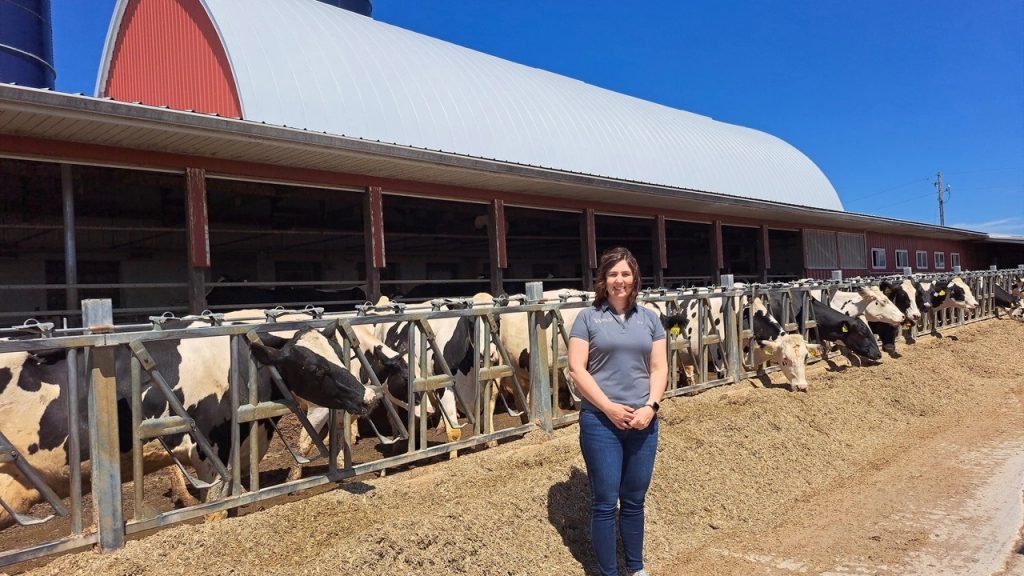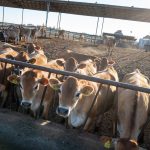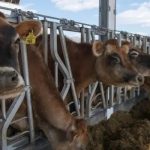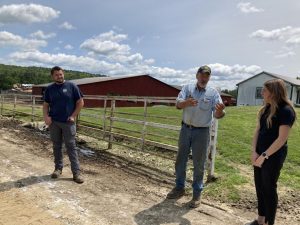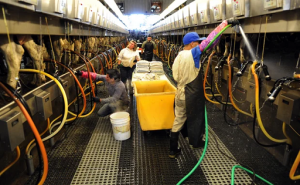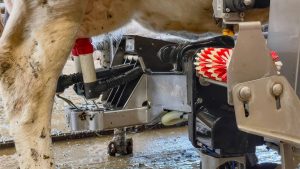
These farmers used their own data to generate reports that reveal farm’s carbon footprint.
Vision-Aire Farms near Eldorado in Fond du Lac County, Wis., is one of several farms that recently received a grant from Dairy’s Foundation, and sponsored in part by Nestle, to help pay for the cost of learning their farm’s carbon numbers.
Janet Clark and her husband, Travis, milk 140 Holstein cows and raise 160 heifers with her parents, Roger and Sandy Grade, and her brother David Grade at Vision-Aire Farms. The family farms 1,100 acres, including 866 tillable acres that they own and an additional 234 rented acres.

Grant helps dairy farmers learn carbon score (Fran O’Leary)
The grants are part of Professional Dairy Producers’ “Your Farm, Your Footprint” initiative. Three reports are available to participants: Cool Farm Tool, Comet, and Farm ES.
“Each report has slightly different data,” says Janet. “Cool Farm Tool is crop-specific and is the best to evaluate peer to peer. Comet is field-specific, and your carbon footprint is based on your tillage practices, manure applications and nutrient management plan. The Farm ES report is based solely on your dairy practices. You provide your milk production, rations and energy use on the dairy. We found value in getting all three reports.”
Carbon negative
Clark says their reports indicate their farm is carbon negative. “That means we are sequestering more carbon than we are adding,” she notes.
Their in-field practice comparisons show they are removing as much carbon from their crops as taking 120 average-size passenger cars off the road per year.
“By seeding cover crops, we are saving 440 tons of soil from eroding, or the equivalent of 28 dump trucks of soil,” Clark says.
All reports are kept confidential and shared only with the participant producer. Clark says they chose to have a copy of all three reports sent to their dairy plant.
Beneficial information
Being a part of ‘Your Farm, Your Footprint’ has been valuable for the Clarks.
“I was really surprised at how easy and straightforward all the data collection was, and how interesting it was to see how the report comes out,” Janet says. “It is information that we can use. Maintaining that confidentiality was important. It was also super easy. All of this data was at my fingertips — our energy use, our cow data, our nutrient management plan. All of that information was easy for me to hand over.”
As they went through the process, she says they found out that they are already doing a good job.
“Now we can start looking at other practices that we can start implementing on our farm to do an even better job,” Clark says. “We can look at what others are doing and figure out how that will change our carbon footprint.”
They will look at practices that are going to grow the farm and continue making it sustainable.
“We wanted to use that data, because now we can measure it and we can manage it,” she adds. “As a dairy farmer, I always want to be measuring and managing my data on my farm.”
More information about the program is available at pdpw.org/your-farm-your-footprint.
You can now read the most important #news on #eDairyNews #Whatsapp channels!!!
🇺🇸 eDairy News INGLÊS: https://whatsapp.com/channel/0029VaKsjzGDTkJyIN6hcP1K
